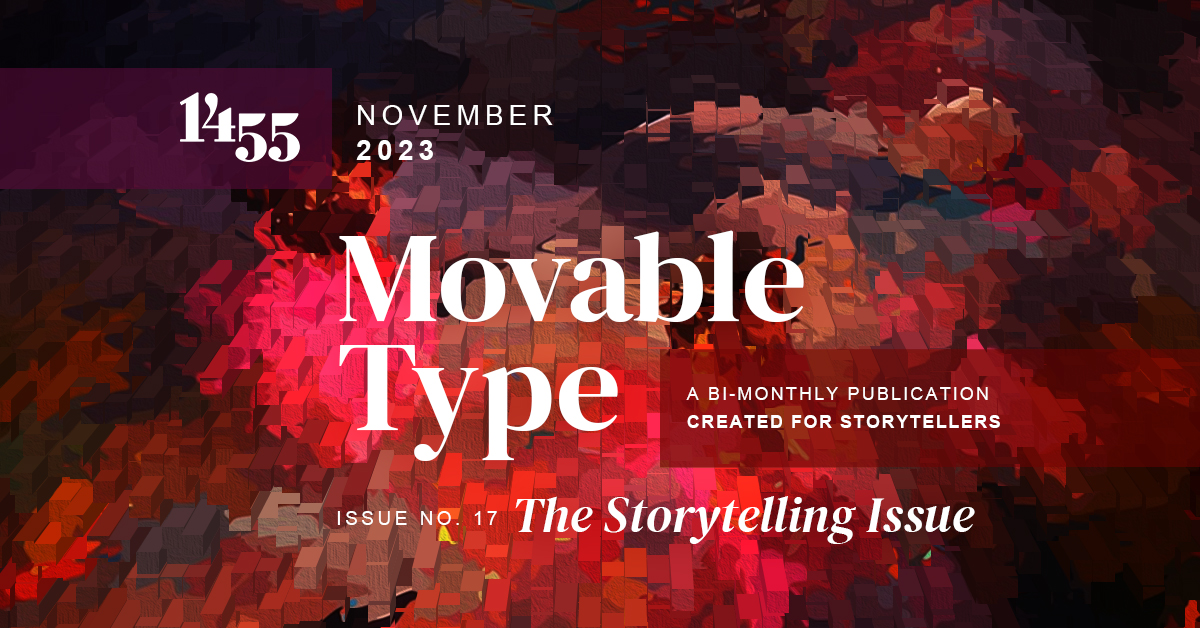Stephen Kiernan
Excerpt from The Glass Chateau
In the valley lay the river, winking like a flirt in the afternoon sun.
Where Asher found the energy, he could not say. Perhaps it came from the soap he held under his nose during the walk. But by the time he reached the flatland road to the river, he had shed his coat and vest, rolled up his sleeves, and leaned on a fence post to remove his boots and socks.
Barefoot in the dirt he ambled, relaxing more with every step. A copse of poplars congregated to one side, like senators before a formal occasion. He rounded a bend, and there the bridge stood basking.
The river was more than beautiful; it was independent, a complete being, possessed by nothing but itself. The fluid it carried, the path it carved in the earth. He stood in a deep calm.
Suddenly out of the depths a fish leapt incredibly, higher than Asher had ever seen before, amazing, seeming to hang in the air, while the fish saw the upper world in all of its immensity and light, snatching some morsel before plunging back, making rings that remembered where the leap had occurred, and, in their spreading, forgot.
There is no water great enough, Asher thought, to wash away my sins.
Following a narrow trail, pushing aside branches that seemed intent on scratching him, he found a secluded spot downstream of the bridge. Any task that left him defenseless made him uneasy, so he sought a place with concealment. Leaving his boots on the bank, Asher tucked the soap in his pocket and, still dressed, waded in.
His shirt revealed his ribs like a cat’s scrawn when its fur gets wet. Squatting till the water reached his neck, Asher felt its muscular pull, and liked it. What was current anyway, but a river’s desire to take everything away?
He began to remove his clothes, pants first, scrubbing them roughly with the soap, rinsing them plunge upon plunge. Had the river been clear, a plume of dust and sweat would have become visible downstream.
After cleaning each garment, Asher draped it on a branch to dry, attire for a family of ghosts. When he grabbed his collar to pull the shirt over his head, it tore shoulder to shoulder, shreds in both hands, strips on his back. How could he stay at the château if he didn’t have a shirt?
Tossing the rags on the bank, and with careful steps, he treaded to deeper water. The river flowed like all things, from past into future. Time to wash himself.
At first it was about removing dirt, scrubbing and cleaning, but soon something else began to happen. A rediscovery of his body, a reacquaintance. Asher could not remember the last time he had been naked. Bruises here, calluses there, all of it nearly weightless, and tendered by the current’s steady caress. He scrubbed his knuckles and rubbed his thumbs, his chest like a cabinet, folds and functions between his legs, the cleft of his rear, and down both thighs. Balancing, he gave the arches of his feet each a soapy massage, and nearly cried out at the pleasure. It was an awakening, the parts of his person remembering themselves. Bubbles formed on the water’s surface, a beard of white as he soaped his neck and face, lathered his hair clumped with sweat and oil, till it was fine and clear and light. He took a huge breath and plunged.
The world went silent, no sense of current, only the lightness of his bones and a reserve of air in his lungs. Hair floating, shoulders relaxing, Adam in his Eden.
Asher rose gasping and splashing, wiping his eyes, and realized he was no longer alone. The clop of slow hooves, a creak of wagon wheels. He cursed, to be caught this exposed and without a weapon, and drew into cattails on the far side.
Into view, upstream at the bridge, came a single donkey pulling a cart. A woman’s voice corrected the animal, who reversed his steps onto the roadside grass. There, indifferent to all but his appetites, the donkey bent and began to feed.
Asher was already gliding across the river toward his dangling clothes. But before he could reach them, she appeared.
Marie. In an olive-green working dress, bending at the water’s edge, cupping a handful of river to rub it on her neck. Saying something more to the donkey, she tossed her hat in the grass and unknotted her shoes. Asher ducked behind willow branches, their leaves trailing on the river like a maiden’s hair.
His clothes hung between him and the woman, whose attention fortunately remained fixedly upstream. Marie stood on the bank considering something, then decided, and began to open her chemise: top button, second button, third. Asher checked in all directions. Nowhere to go.
Marie fiddled with the last button, but when it continued to resist she pulled the shirt over her head. She wore nothing else on top, only tan skin and white skin and a woman’s secrets. He looked away, but not for long. She had stepped out of her dress, and, wearing a thin white shift, she waded in. The fabric ballooned around her hips, floating as Marie waded deeper, her motions as smooth as a swan’s, until the water reached her waist.
As Asher watched, concealed, she splashed water up one arm and the other. She ran a hand along her neck, and down between her breasts. In one fluid motion she removed the comb on her head, tossed it to the shore, and shook her braid loose. Nut-brown hair cascaded down her shoulders. Moving to deeper water, she took a breath and vanished. Where she’d been standing, the river smoothed.
Now was the time for Asher to dash forward, grab his clothes, and retreat into the brush. But if she surfaced at any moment, there he would be. He did not move.
Time passed, and Marie had not come up for air. He craned out from the leaves, to see if she’d swum upstream. The river remained unruffled. Still she did not reappear. He crept from his cover; had something gone wrong, should he attempt a rescue, might doing so frighten her—of course it would frighten her.
The woman burst upward, sucking in a huge breath as she flung her hair side to side. Asher sank till only his eyes and nose were above the water, an ogling crocodile. Still Marie did not look downstream. Her back was muscled and lovely. But then her shoulders began to shake, her head tilted to one side, and he heard strange sounds. Laughter, he thought, until he understood that, no, she was weeping.
Marie did not bend, though, but rather stood upright, facing the sun while she let the pain pour out of her. Asher searched left and right and there was no exit anywhere. He was forced to witness as her sorrow deepened, the woman sobbing now, with her whole body, till he made himself turn downstream. And still could hear her.
Eventually Marie’s keening quieted. She wrapped her arms around herself, as if being hugged. After another deep breath, again she submerged.
This time she did not stay under long. The moment she surfaced, she strode toward shore like the champion of a race, water down her glistening flank, the shift clinging to her hips and legs like a second skin. Even with the river spangled by sunlight, the wet clothes showed Asher everything.
Before he could recover, Marie had stepped into her dress, pulled the chemise over her head, toed her shoes back on, braided her hair with fingers deft and quick.
“Come on, Pétain,” she told the donkey. “Home and I’ll feed you now.”
His hooves clopping, they crossed the bridge and headed south, out of sight.
Asher realized that he had been holding his breath. When he released and inhaled again, he felt like a different man. Unclean for what he had seen, enthralled by her nakedness, reminded that he was not the only person suffering in this world. Some part of him had leapt from the river, flinging itself clear of the water for a brief moment, falling too soon back into reality, but newly aware that there was an entire world in that upper realm, alive and brilliant with sun.
Striding through the river to his take down his garment-ghosts, all that he knew was resolve. He was not leaving this place. He was not going anywhere.

ABOUT THE GLASS CHATEAU
One month after the end of World War II, amid the jubilation in the streets of France, there are throngs of people stunned by the recovery work ahead. Every bridge, road, and rail line, every church and school and hospital, has been destroyed. Disparate factions—from Communists, to Resistance fighters, to federalists, to those who supported appeasement of the Nazis—must somehow unite and rebuild their devastated country.
Asher lost his family during the war, and in revenge served as an assassin in the Resistance. Burdened by grief and guilt, he wanders through the blasted countryside, stunned by what has become of his life. When he arrives at le Chateau Guerin, all he seeks is a decent meal. Instead he finds a sanctuary, an oasis despite being filled with people every bit as damaged as him. But they are calming themselves, and recovering inch by inch, by turning sand into glass, and glass into windows for the bombed cathedrals of France.
It’s a volatile place, and these former warriors manage their trauma in different ways. But they are helped by women of courage and affection. Asher turns out to have a gift for making windows, and decides to hide the fact that he is Jewish so the devout Catholics who own the chateau will not expel him. As the secrets of the chateau’s residents become known one by one, they experience more heated conflict and greater challenges. And as Asher kindles his talents for glasswork, his recovery will lead the way for them all.

About Stephen P. Kiernan
As a journalist and novelist, Stephen P. Kiernan has published nearly five million words. His newspaper work garnered dozens of awards — including the George Polk Award for medical reporting, the Scripps Howard National Journalism Award, and the Freedom of Information Award from the Joseph Brechner Center for Freedom of Information at the University of Florida.. Stephen has twice received the Denis Didierot writer-in-residence fellowship to the Chateau d’Orquevaux artists’ colony in eastern France, as well as a New York Newspaper Foundation residency at the Yaddo artists’ colony in Saratoga, NY. Stephen spent many years on the staff of the Breadloaf Writers Conference, and one year on the staff of the Breadloaf School of English. A performer on the guitar since he was ten years old, Stephen has recorded 3 CDs of solo instrumentals, and composed music for dance, the stage and documentary films. He lives in Vermont.
Website: stephenpkiernan.com
Twitter: @StephenPKiernan
LinkedIn: linkedin.com/in/stephen-kiernan-8189bb12
Facebook: facebook.com/StephenPKiernan


